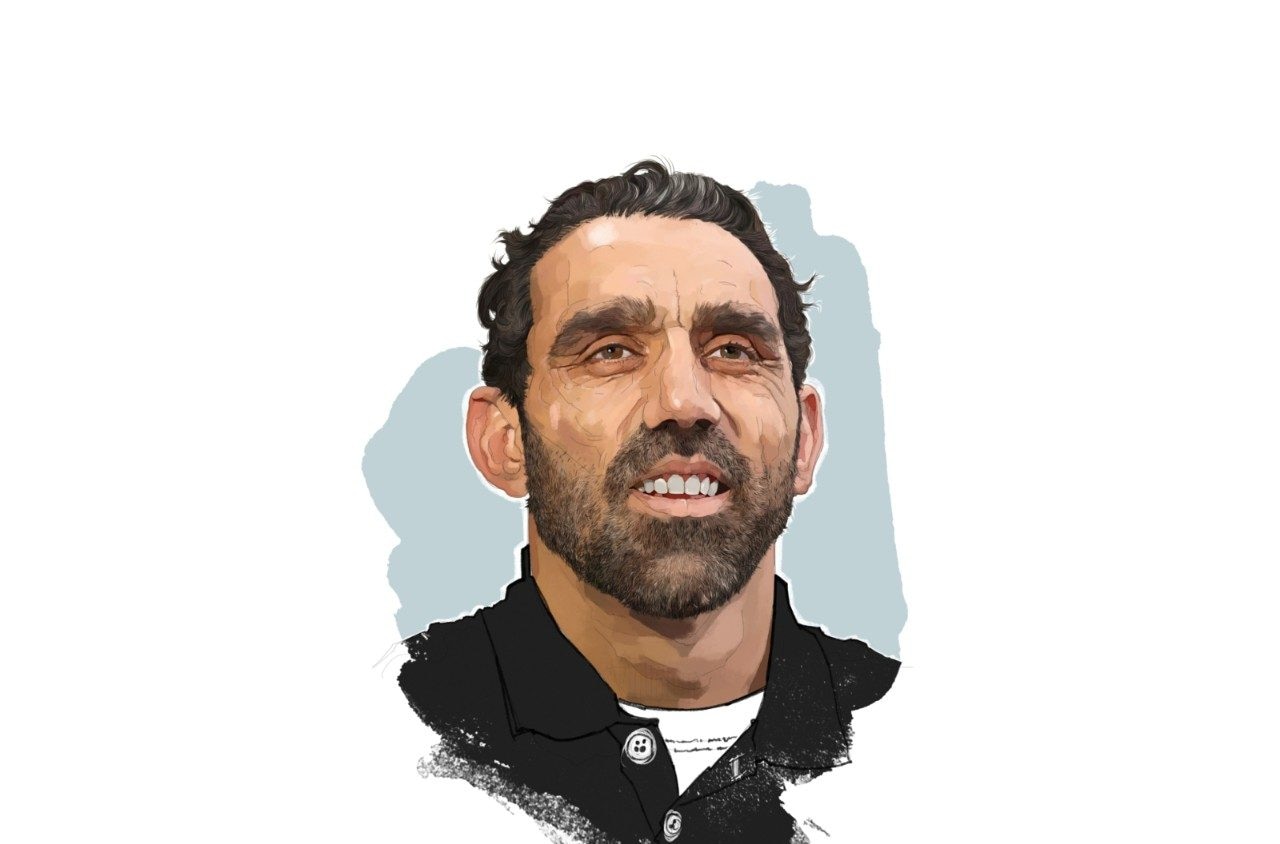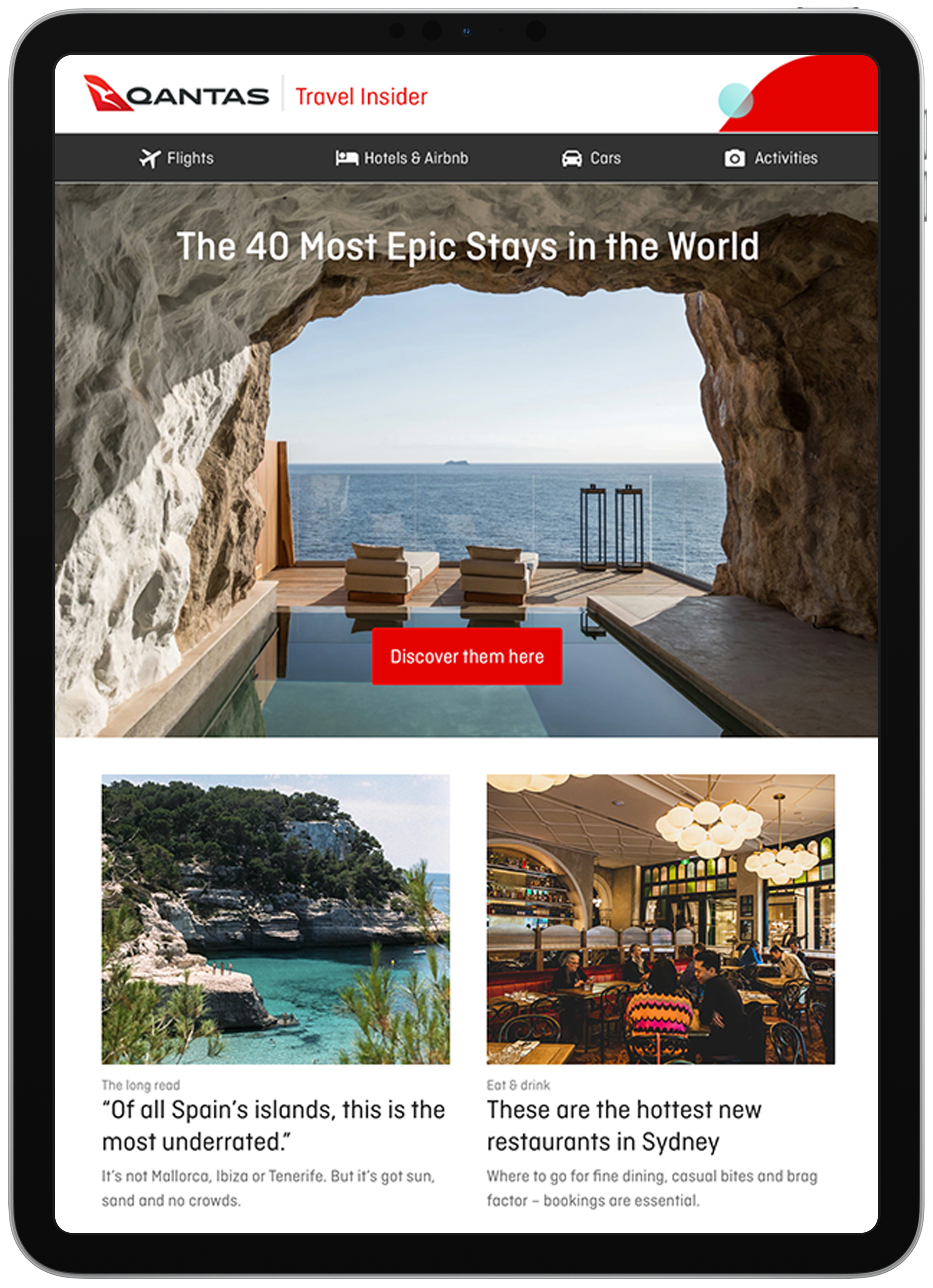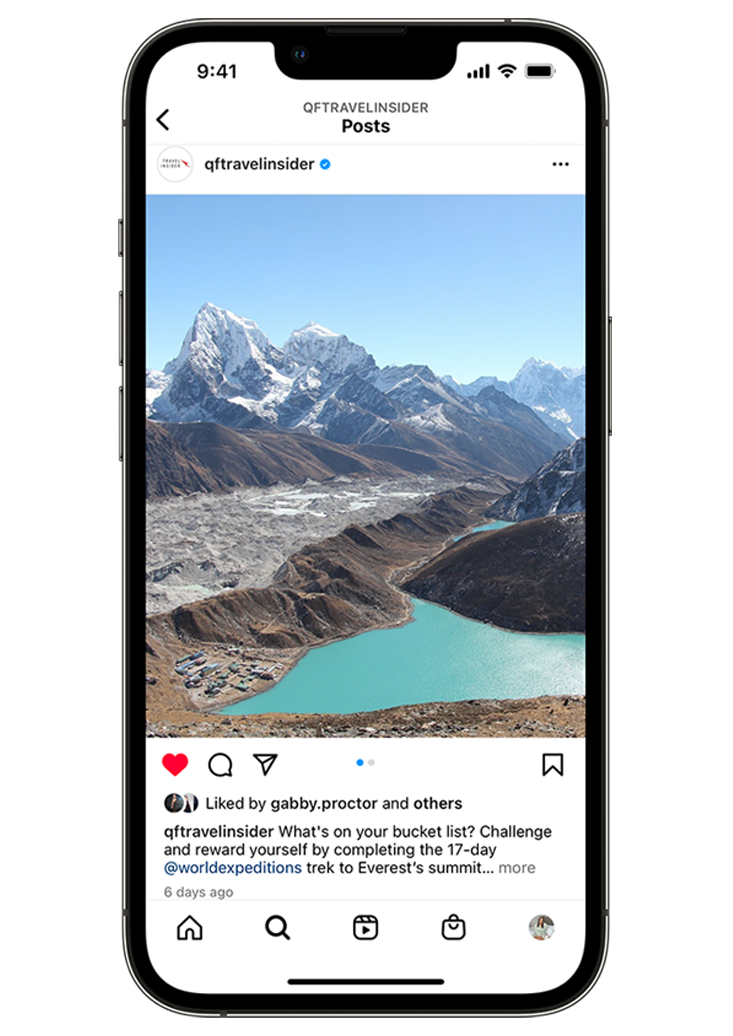Adam Goodes Refuses to Compromise on His Values

The former AFL star and CEO of the Indigenous Defence & Infrastructure Consortium (IDIC) refuses to compromise on his values.
Current role: CEO and director, Indigenous Defence & Infrastructure Consortium (IDIC)
Tenure: Eight-and-a-half years
Previous roles: Chairman, Nogard Australia; chairman, AFL Players’ Association Indigenous Advisory Board; Sydney Swans player
How do you define great leadership?
The difference between leadership and great leadership is consistency of effort, consistency of performance and consistency of uplifting people in your ecosystem. It’s all about the success of your team.
You set up the IDIC in 2016 to help First Nations businesses get a foothold in Australian infrastructure and defence contracts. Are you happy with what you’ve achieved?
We’ve been able to put nearly $450 million worth of social and economic value back into our Indigenous communities. I’m extremely proud but it’s still just a drop in the ocean. This is the vehicle for my people to uplift their lives through education and business. The Indigenous Procurement Policy (IPP) has been a real vehicle of change.
Procurement is never a very exciting topic but having those policies in place makes all the difference, doesn’t it?
It certainly does. In 2015, I retired from football – the same period the government introduced the IPP, which forced government agencies to set 0.25 per cent of contracts with Indigenous businesses and federal government agencies to get to a maximum of three per cent [by July 2027]. Indigenous businesses had about $6 million worth of spend [before the IPP]. In one year, it was up to more than $250 million. Now the sector [as a whole] has contributed close to $16 billion. Indigenous businesses are contributing services, goods and manufacturing technologies to government agencies and the corporate sector, which in turn is helping Indigenous communities have more positive role models and more wealth. The three biggest choices for an Indigenous Australian are where you live, what school you can go to and what sort of healthcare you can get. With wealth, you get to decide all those things and they’re the three biggest things, from my point of view, that create the disadvantage between Indigenous and non-Indigenous people.
What are the biggest challenges for First Nations businesses?
Getting your foot in the door. More than 3000 organisations have Reconciliation Action Plans [RAPs] but we still have Indigenous businesses struggling to get a meeting with those organisations that have KPIs set around procurement and employment. IDIC is all about creating a strong relationship with our clients and helping to get as many Indigenous businesses into the supply chain as possible.
You consult to a lot of companies on their RAPs. If First Nations Australians can’t get a foot in the door there, what’s going wrong? Is it because the RAPs are tokenistic?
When times get tough in business, the first place that seems to get cut is the D&I [diversity and inclusion] space. “We’ve got to focus on business; we’ve got to get our profits up; we’ve got to make sure that our shareholders are happy.” It needs to be a top-down approach. That’s why we only sign our agreements with the CEOs of companies. If we hit a brick wall or red tape in their business, I can take it straight up with the CEO and that’s such a different power mechanism.
I know you feel very strongly about your values. How do you assess who you want to work with?
We have clients coming to us, which is a really great position to be in because we then get to meet with them and talk about their values. It’s not only about transactional opportunities for our Indigenous businesses, it’s also about education and learning so we work with companies to help them better engage Indigenous people, communities and businesses. I didn’t learn anything about Aboriginal people at school and a lot of people are the same. So we need to take them on a journey – not only about the importance of the RAP and the procurement policy but most importantly, the why. Why do we want to make an impact? That’s where I nut out the real value.
And how does that align with your 140 suppliers?
I personally invite them to join our consortium. I meet with the business owners, the capability partners. I do ask them to meet the Supply Nation certification model that’s 51 per cent or more Indigenous ownership. I take it one step further, though – I need to see management control in that business by the Indigenous person or community.
It was really important to you that IDIC be a for-profit company, wasn’t it?
Exactly. I’ve worked in the non-for-profit space for 15 years now with my GO Foundation [which he founded with fellow Swans player Michael O’Loughlin to improve access to education for Indigenous youth]. We wanted to educate our Indigenous community members that it’s okay to make money, it’s okay to be successful, it’s okay to build wealth. If I can get more contracts and more dollars into those businesses, more people in those communities will be employed by their aunties, uncles, brothers, sisters and community leaders. That’s where the real change is happening.
Is your profile a huge advantage in opening doors or is it a double-edged sword sometimes?
It gets you in the door – and the door that’s usually not accessible for everyone – but after you get in the door, you have to have a good business, a good idea, good values and a track record. A meeting is fine but you’re not there just for a meeting – you’re there to do business. You’re there to showcase the importance of Indigenous businesses, to show people how easy it is to procure with Indigenous businesses and to actually change their sometimes unconscious bias towards Indigenous people. That’s a big responsibility.
As a proud Adnyamathanha man, you feel a responsibility to use your voice. Does that also weigh on you sometimes?
I was gifted a platform through my football career and I used that the best way I thought I could. Post football, I feel like my platform has changed, which is great, because I really enjoy the platform I have and the network I’ve created. But there is pain sometimes because not everyone agrees with you. I love that we are a democracy. We’re not all robots. But it shouldn’t stop us from being able to say how we feel and what we want. I’m always open to having constructive, candid conversations.
People are often worried or scared about getting things wrong when it comes to First Nations people. What’s your advice?
All I say is try. And get some advice if you don’t understand. If you’ve got a Reconciliation Action Plan, you have a group of Indigenous advisors giving you expert advice on what you should do and how you can do it. Asking for help is not a sign of weakness.
A lot of athletes struggle with life after sport. What made that transition easier for you?
I started dipping my finger in things outside of football. I joined a couple of boards – Supply Nation and The Australian Literacy & Numeracy Foundation, which I’m still sitting on today. They were both safe spaces for me to learn and grow and hopefully add some value. I’ve had to learn a lot. You know, I don’t have an MBA, I never went to university but here I am as a CEO of a business. I’m surrounded by people who know a lot more than me and have helped me the last eight years in this position. I’ve never been one to say I know it all; I’ve always known that I can improve.
How has your leadership changed over the years?
At the Swans, in 2003, we came up with our values system, our behaviours that were going to represent us, and we used that as a scorecard to pick our leadership group. I didn’t get one vote from any of my peers and I thought, “Wow, this is not good. People don’t see me as a leader or as someone who is showing any of those values.” That really was a kick in the guts for me. I could have left the room with my tail between my legs but I grabbed [senior coach] Paul Roos and [forwards coach] John Longmire and asked them what I needed to do. That was a big step for me and I made a commitment in that room that I was going to be a more consistent player and that every time I was on the field, I would contribute with my voice. For the first time in my life, I wanted to be a leader. I had the value system, I had the behaviours and the roadmap. I had the guidance of my coaches to help me. We lost the preliminary final but I won my first Brownlow Medal, won the best-and-fairest and most importantly, I was voted into the leadership group. That, to me, really emphasised the importance of having a plan.
What’s your greatest strength as a leader?
I have personal relationships with all of my people – I’m the person who drags them into a room and has deep conversations with them, challenges them and supports them. And I’m extremely consistent. I’m not the type of leader who has a value system that I don’t believe in and perform myself.
And what about your biggest gap?
My team is spread over the country so it’s very easy for me to be more heavily invested in the people I see every day in the office. I also find it challenging maintaining personal relationships at the level that I want as a leader with the CEOs of the organisations that we partner with. I’d hate for those relationships not to be as strong as they need to be when there’s conflict or we’re being challenged.
Are you good with conflict?
Yes, I’m great. One of our values at IDIC is radical candour. Not only do we deliver it but we expect it from our clients and stakeholders. I’m not here to waste people’s time. This is who we are. In our very first meeting, we share our values so that they understand this is what we’re going to deliver.
What does work-life balance look like for you?
I’m in the office Monday, Tuesday, Wednesday and work from home Thursday. Friday is a no-meeting day and all the family is at home – my wife and three kids – so we have a three-day weekend where we have lots of time together. I’ve got a great team behind me. Parts of my team take up a lot of slack and do a really great job so I can do a really great job. Work-life balance is important to me and all of our people in the business.
What’s one piece of advice you’d give a brand-new CEO?
It can be quite lonely so create a network. I’m part of an Indigenous C-Suite network here in NSW. We get together once a month and talk about challenges and how we can support each other. As a CEO, yes, you are the tip of the spear but you need your team and you need people outside of your network to help support you and guide you. And don’t stop the learning – once you get to the top job, there’s still so much learning that you need to do.
On the fly
Personal motto
Be kind.
Email approach
I’m old-school; I like to talk to people. So email is very professional, straight to the point and super-short. I always like to follow up with a phone call.
Motivation tactic
Through business, we can change generations of Indigenous people. That’s the driving motivation for me.
Productivity hack
Write lists. I’m good at making them; terrible at sticking to them. I have multiple apps.
Business book
As a sporting person, I could relate heavily to Andre Agassi’s Open but it blew my mind that he was so good at something that he hated doing.
A rule you don’t break
I love to reward myself and I’ll never break a promise to myself.
Favourite piece of advice
It’s a quote from NBA player Isaiah Thomas: “If all I’m remembered for is being a good basketball player then I’ve done a bad job with the rest of my life.” I had it in the back of my locker my whole career. Yes, this is what you’re doing today but don’t let that be the restrictor of what you do tomorrow.

Start planning now
SEE ALSO: Multidisciplinary Artist Jan Baljagil Griffiths finds Inspiration in Family and Tradition
Image credit: Marc Némorin


